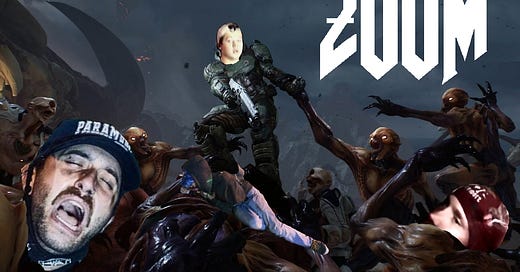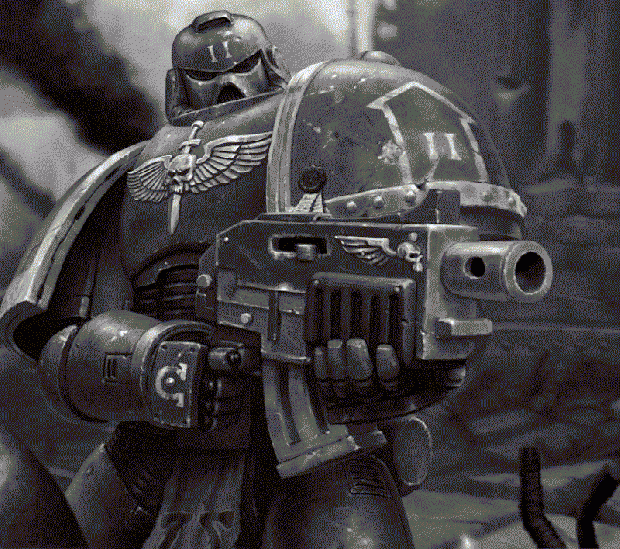Reconstructivist Fiction, Rebuilding Truth
What happens when deconstructing reality goes too far: the author builds back better.
Every now and then post-modernists go too far in their attempts to deconstruct their society, our hierarchies and traditions and other pillars of our social system. The last century and a half has generated numerous humanist ideologies vying for dominance and each seeking new industrial and post-industrial social models.
Much of post-modern liberalism is dedicated to destroying, critiquing, and deconstructing all traditional models of society and thought. Post modernists doesn’t actually stand for anything themselves, from some vague (and verifiably false) notions of human exceptionalism. Humanist ideas they’ve built their world view on like tabula rasa are objectively incorrect. Yet those ideas persist on sheer momentum.
An odd thing happens when these abhorrent creatures go too far in the deconstruction of society: they can accidentally rebuild old cultural traditions. Much like meta-irony and post-meta-irony, reconstructivist fiction is a point where the line between hyperbole and honesty becomes blurred by the context of the society it inhabits.
Deconstructivist fiction will critique and deconstruct a society by emphasizing flaws and minimizing strengths. Reconstructivist fiction takes deconstruction to such a hyperbolic extreme that, in the context of the twenty first century, the fiction is in some ways preferable to the society we now inhabit. I’ll provide a few examples.
Warhammer 40k
A quintessential piece of reconstructivist fiction in the 21st century is Warhammer 40k. “in the grim darkness of the future there is only war.” Warhammer depicts a stagnant humanity in constant war with hostile forces where the Emperors chosen Angels, heroic superhuman space marines defend humanity in grotesque and bloody battles. Warhammer depicts galactic turmoil, a society where the Cult of the Emperor violently suppresses heretics due to very real risks as chaos demons can easily infiltrate unguarded minds. Warhammer describes an entire society geared for constant war with regimented lives.
It’s dystopian. To a neoliberal humanist, Warhammer 40k is a fiction designed to highlight the flaws in totalitarianism and zealous extremism. Beyond the set dressing of humanism, however it changes. The neoliberal mind sees no point to life beyond hedonism, materialism, and the pursuit of pleasure. Values like sacrifice, honor, valor, or loyalty are not considered. As an ideology, neoliberalism despises those things as a core tenant is “there is nothing beyond my immediate experience of physical reality.”
Warhammer 40k gives to its fictional characters something that a humanist society does not: meaning.
Sure an inquisitor had to destroy an entire planets worth of civilians to root out hostile heretical influence. But he didn’t do it because he wanted to, he did it because he needed to. Because that sacrifice was necessary, because it meant something. In a universe at war, every sacrifice means something. Billions die in trenches, but the Imperium survives, humanity survives against all those who would destroy it. It takes the masculine ideal of sacrifice for family, for friends, for homeland, and for a people, and turns it up to a galactic scale. Warhammer is a dystopian fiction I would not want to live in, but I recognize the power inherent in the uncompromising words:
There is wisdom in tradition, there is meaning in violence, there is hope in suffering. What happens in Warhammer happens for a reason; the idea that the suffering of individuals, no matter how small, is part of a greater mission. The suffering of the individual is justified by the greater mission. For the humanist progressive, there can be no such thing as tolerable suffering or justified suffering. Warhammer 40k is reconstructivist in that it rebuilds a mythology that imbues meaning into loyalty, valor, sacrifice, hope, righteousness, tradition, and pain. It makes that dystopian galactic war of 40k more meaningful than our lives here at the dawn of the 21st century.
Starship Troopers
Starship troopers is another example. The setting occurs in a hyperbolic semi-fascist society and once again imbues that society with meaning for the individual through righteousness of action. There aren’t moral shades of grey in the society, there is right and there is wrong, and a clear delineation between the two. The characters of this setting benefit from moral certainty, something that even the dissident Right struggles to maintain. It is a breath of fresh air in the face of constant legalistic obfuscations to justify state-violence.
The state acts because it can. That the state maintains its strength through violence. That those who would challenge the state must meet it on the field of battle. Compared to progressive harpies droning on about “taxes” or “police” or “moral culpability” it’s far more meaningful to see honesty on behalf of authority and force.
Both the film, and the book show this reconstructivism in different ways, but they do so clearly. The fiction shows that, despite the totalitarian nature of the state, individuals within it are a part of something greater. Rather than reliance on some nebulous concept of the ‘soul’ or the ‘divine spark of the individual’ (a belief humanists will happily declare to be secular). People within the fiction all participate in the same monoculture with the same ultimate purpose. The camaraderie of a platoon of soldiers but at a grand scale. Regardless of individual suffering, these peoples lives participate something far greater than themselves. They may have little choice, but they have a drive that neoliberal hedonists will never have.
Helldivers 2
If Starship troopers were to have a videogame built around it, that game would be Helldivers 2. Helldivers 2 is a first person cooperative game where players take on the role of the heroic heroes of super-earth and spread managed democracy to the galaxy to ensure peace and prosperity for every one.
While the subtext of the game indicates that the world itself is a night-mare dystopia where people are used as pawns, managed democracy is managed by elites who use people as pawns, and spreading democracy to the galaxy is merely genocide by another name… it’s a deeply enjoyable game to play. The hyperbolic extreme to which the supposed totalitarian state of super-earth is taken creates a sense of comradery among the players. A sense that there is a greater mission to their lives and, even though they may be killed by a bugs acid spray 30 seconds after their drop pod lands, they’re accomplishing something for the greater good.
The moral certainty it provides, even if an obviously false certainty, is extremely welcome in an environment where post-modernists are constantly trying to paint the world with shades of grey and deconstruct the society we grew up in. Wouldn’t it be great if we could just all get on the same team and say “these groups are evil, eliminate them,” instead of playing these false moralizing games? The propaganda of our era and the propaganda of the totalitarian state in Helldivers 2 are both merely set dressing. It doesn’t matter what we think or say, we’re acting on behalf of a greater whole whether we want to or not.
The difference is in the game Helldivers 2, you want to. There’s nothing like hearing your player shout “For Democracy” immediately before dropping a 500kg bomb on what is, in all likelihood a group of individuals just as in-over-their-heads as you are. Highly recommend playing the game or at least watching the intro-cinematic above.
An Unbiased History of Rome
An Unbiased History of Rome may be the only example I believe to be intentional. An unbiased history of Rome is a youtube series by dovahatty. It’s also available on Bitchute, and Odysee. (For obvious reasons I anticipate the youtube version will be deleted eventually). An Unbiased History of Rome presents the millennium long Roman epoch in much the same way that a person who lived at the time would have understood it. Delineated between the forces of Good and Evil, between the forces of Rome and the barbarians.
Dovahatty is perfectly happy to squash myth and legend and written account into the same history. There’s no self-aware discussion of egregious acts of roman soldiers and there’s no question over whether or not defending your people from hostile foreigners is the right thing to do. An Unbiased History of Rome is about the cyclical nature of history, it’s about brotherhood, it’s about betrayal. It’s about legendary heroes and evil pretenders and good emperors. It unapologetically casts aside the veneer of progressive objectivism and is happy to portray good and evil in terms of memes, meaningful events even if they aren’t historically accurate. An Unbiased History of Rome is presented in a fashion where the characters and the gods themselves are gifted with the moral certainty that what they’re doing is right.
An Unbiased History of Rome isn’t about Rome, it’s about the myth of Rome. It’s about the dream of Rome. We need more dreams like that. An Unbiased History of Rome rebuilds a modern mythology untouched by the neoliberals who would replace culture with nihilism. Rome is good, the barbarians are evil, great generals kill the barbarians and preserve the empire. It’s a tribalistic view of human reality that self righteous neoliberal nihilists like to pretend doesn’t exist. Humans aren’t objective, we never have been, and I love the fact that there exists a series like this which pretends no different.
Reconstructivism Breaks Progressivism
Progressivism is obsessed with hyper-individualism and the sanctity of the self and the individual human life regardless of social context. To a neoliberal progressive, war, even defensive war is intolerable and no different from murder. The progressive makes no moral distinction between his own people and hostile foreigners.
The progressive hates hierarchy and believes there to some divine spark that gives guidance in life. “Follow your passions,” and “find yourself,” have become painfully tired tropes. I want to earn an income and start a family, not “find myself.” Those that give such advice do not understand reality or human nature. The vast majority of people would be far happier if given direction in life. Many children and young men would be happier growing up to do what their father does, not “finding themselves” or muddling through a lifetime of debt for a worthless degree.
The majority want to be participants in something greater (a lineage, a nation, a tradition, a history, a religion, a community or a clan), and the majority of people seek external direction in what their life should be expended doing. Progressivism provides no direction, and no sense of participation. It hyperfocuses on meaningless social issues so it can claim to be doing something but nothing ever gets done. The goal posts move. Your actions meant nothing. In the end, progressivism stands for only hedonism and materialism as substitutes for heroism.
Reconstructivist fiction is fiction taken past the edge of hyperbole in a way that demonstrates the fundamental flaws in neoliberal thinking by providing a meaningful alternative. Reconstructivist fiction deconstructs society, and then puts it back together again, but better, without the hedonistic meaningless indifference we’ve grown so accustomed to. It rebuilds new sacrosanct traditions, myths, missions, and taboos. Reconstructivist fiction breaks neoliberalism because it shows that our twenty first century lives, for all our hedonistic comforts, want desperately for something more real and more meaningful. We want family, future, nation and a people to belong to. If there is no distinction between peoples we can hardly belong one, and scarcely be one. I think that much reconstructivist fiction was created accidentally in the past, but do not think it will be accidental in the future. I hope to read or experience fiction in the future that will continue to elicit a sense of hireath in the reader.
Please comment below if you come up with other examples of reconstructivist fiction. I’d love to read them.







